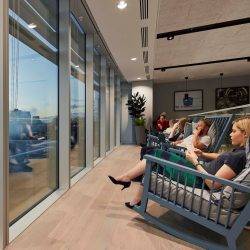January 18, 2017
Sickie and duvet days lead to ‘vicious cycle’ of stress and absenteeism 0
 Employees are more likely to pull a sickie in the first quarter (January to March) than any other time of year, causing increased stress for those who have to cover for their absent colleagues, a new survey claims. The research, which was conducted by Kronos found that over a third (37 percent) of respondents predicted that that they or a colleague would take unauthorised absences or fake a sickness within the first three months of the year. What’s more, they believe this will add up to a total of three to four days and 24 percent said it may stretch to five or six. When asked why they’re likely to pull a sickie, 31 percent blamed the post-Christmas blues, highlighting the challenge for employers to maintain motivation and morale throughout January. Meanwhile, 32 percent said they feel more pressure to keep productivity levels up in the first quarter so their employer could start the year on a good note, causing them to feel stressed and therefore more likely to bunk off work for a mental health day.
Employees are more likely to pull a sickie in the first quarter (January to March) than any other time of year, causing increased stress for those who have to cover for their absent colleagues, a new survey claims. The research, which was conducted by Kronos found that over a third (37 percent) of respondents predicted that that they or a colleague would take unauthorised absences or fake a sickness within the first three months of the year. What’s more, they believe this will add up to a total of three to four days and 24 percent said it may stretch to five or six. When asked why they’re likely to pull a sickie, 31 percent blamed the post-Christmas blues, highlighting the challenge for employers to maintain motivation and morale throughout January. Meanwhile, 32 percent said they feel more pressure to keep productivity levels up in the first quarter so their employer could start the year on a good note, causing them to feel stressed and therefore more likely to bunk off work for a mental health day.

































December 23, 2016
Presenteeism doesn’t aid productivity, so employers should set workers free 0
by Mark Eltringham • Comment, Flexible working
More →